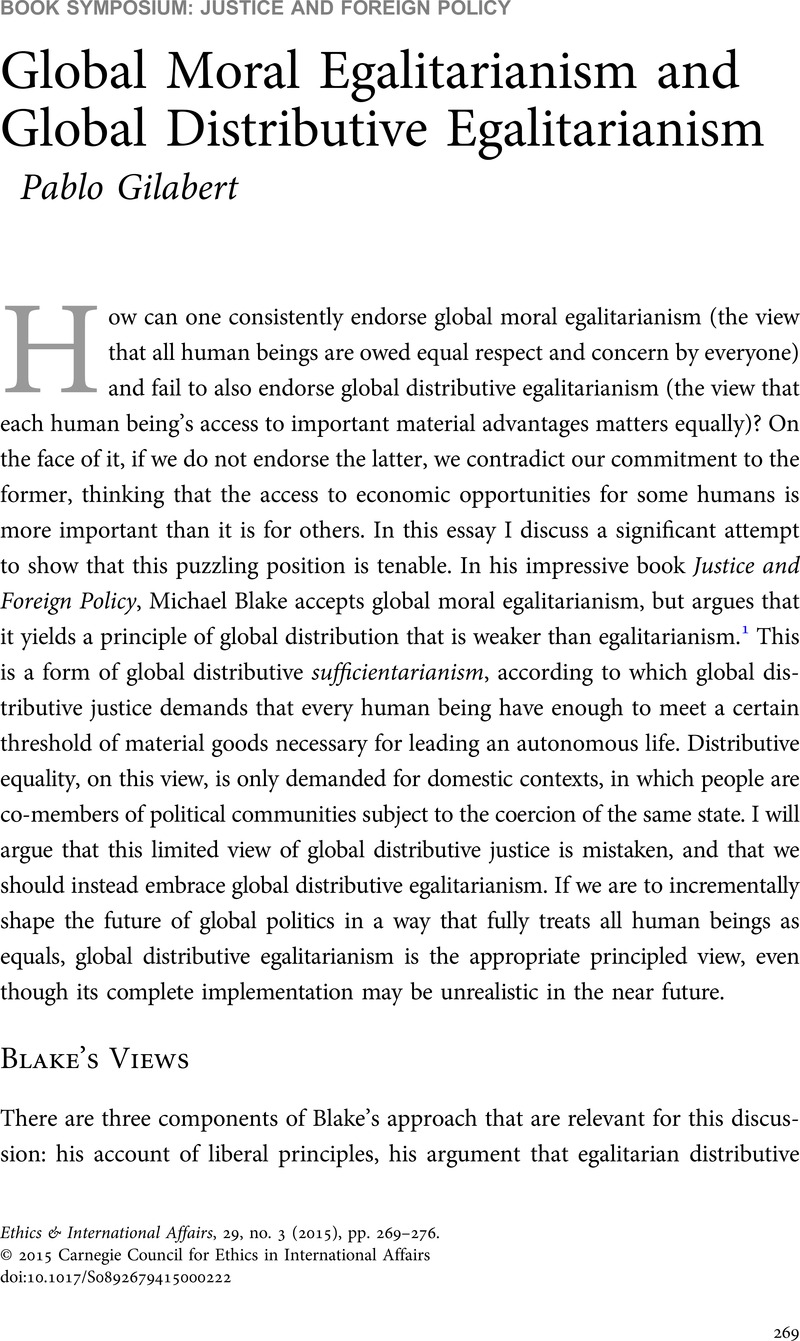Published online by Cambridge University Press: 08 September 2015

1 Michael Blake, Justice and Foreign Policy (New York: Oxford University Press, 2013). Page numbers in the text refer to this edition.
2 Securing the fair value of political liberty does require reducing material inequality, if it is so extreme that it enables the rich to control the political process (effectively disempowering the poor). But demanding the reduction of extreme material equality is not the same as demanding the achievement of material equality (or “maximin”).
3 “Material equality becomes relevant only in the context of certain forms of coercion, forms not found outside the domestic arena” (p. 96). For a discussion of various associativist conceptions of distributive justice that argues that none of them (Blake's included) provide necessary conditions for distributive egalitarianism, see Pablo Gilabert, From Global Poverty to Global Equality (Oxford: Oxford University Press, 2012), ch. 5. See also Caney, Simon, “Humanity, Associations, and Global Justice: In Defence of Humanity-Centred Cosmopolitan Egalitarianism,” Monist 94, no. 4 (2011), pp. 506–34CrossRefGoogle Scholar.
4 For a view along these lines, see Gilabert, From Global Poverty to Global Equality, Part II.
5 An illuminating comparison here is with long-range thinking about climate change. I thank an editor for suggesting this point.